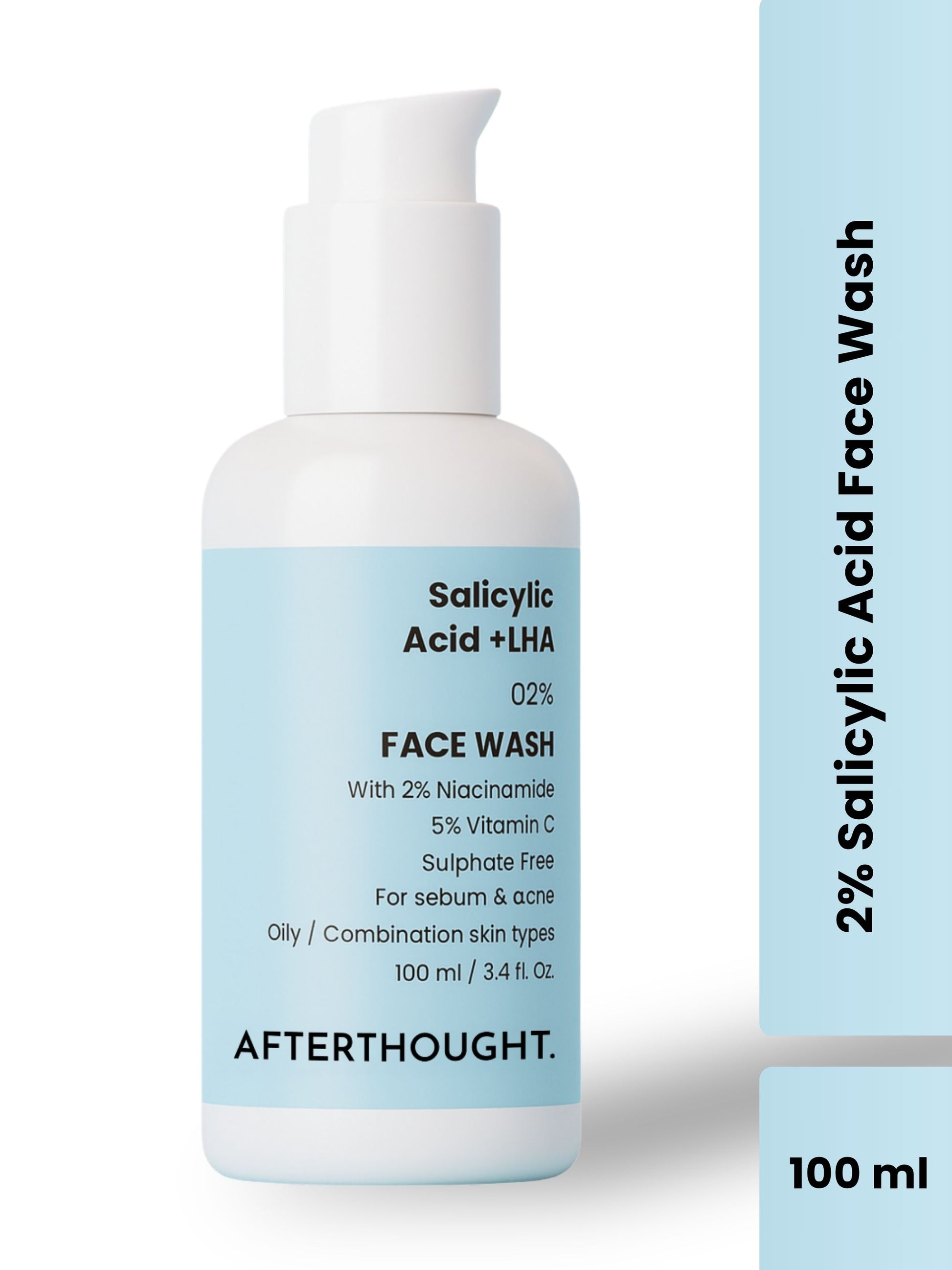Which Face Wash Is Best For Dark Spots?
Dark spots, also known as hyperpigmentation, can arise due to various factors such as sun exposure, hormonal changes, aging, and skin inflammation. Welcome to Afterthought.
While there's a plethora of face washes claiming to target dark spots effectively, understanding the underlying mechanisms and key ingredients can help consumers make informed decisions. In this comprehensive guide, we delve into the science behind dark spot reduction in face washes.
Understanding Dark Spots:
Before delving into the effectiveness of face wash, it's crucial to understand the physiology of dark spots. Hyperpigmentation occurs when melanin, the pigment responsible for skin color, accumulates in certain areas of the skin. This can result from excess melanin production triggered by various factors, including UV exposure, hormonal changes (such as pregnancy or contraceptives), inflammation, and genetic predisposition.
Ingredients to Look For:
- Alpha Hydroxy Acids (AHAs): AHAs like glycolic acid and lactic acid exfoliate the skin's surface, promoting cell turnover and fading dark spots over time.
- Beta Hydroxy Acids (BHAs): Salicylic acid, a common BHA, penetrates deep into the pores, effectively exfoliating the skin and reducing the appearance of dark spots and blemishes.
- Vitamin C: Ascorbic acid, a potent antioxidant, inhibits melanin production and brightens the complexion. It also helps to protect the skin from oxidative stress caused by UV radiation.
- Niacinamide (Vitamin B3): Niacinamide reduces melanin production, evens out skin tone, and strengthens the skin barrier, making it less prone to damage and pigmentation.
- Licorice Extract: This natural ingredient contains glabridin, which inhibits tyrosinase activity, the enzyme responsible for melanin production, thereby reducing dark spots.
- Retinoids: Retinoids, derivatives of vitamin A, stimulate cell turnover, promote collagen production, and fade dark spots over time. However, they can be irritating to some individuals, so it's essential to start with lower concentrations and gradually increase usage.
- Kojic Acid: Derived from various fungi, kojic acid inhibits tyrosinase activity, thereby reducing melanin production and diminishing dark spots.
How Face Washes Work:
Face washes formulated to target dark spots typically work through a combination of exfoliation, inhibition of melanin production, and antioxidant protection. Regular use of these products can help fade existing dark spots and prevent new ones from forming by promoting healthier skin turnover and minimizing melanin production.
It's important to note that while face washes can play a significant role in addressing hyperpigmentation, they are just one part of a comprehensive skincare routine. To maximize results, it's essential to complement face washes with other treatments such as serums, moisturizers, and sunscreen.
Choosing the Right Product:
When selecting a face wash for dark spots, it's crucial to consider your skin type, sensitivity, and the severity of hyperpigmentation. Patch testing new products can help determine compatibility and minimize the risk of adverse reactions.
Additionally, it's advisable to consult with a dermatologist or skincare professional, especially if you have sensitive skin or underlying skin conditions. They can provide personalized recommendations tailored to your specific needs and help you navigate the vast array of products available on the market.
Conclusion:
While the quest for an effective face wash to combat dark spots can be daunting, understanding the science behind hyperpigmentation and key ingredients can empower consumers to make informed choices.
By incorporating face washes with proven ingredients into a comprehensive skincare regimen, individuals can achieve brighter, more even-toned skin over time. Remember, consistency and patience are key when addressing hyperpigmentation, and results may vary depending on individual factors.









